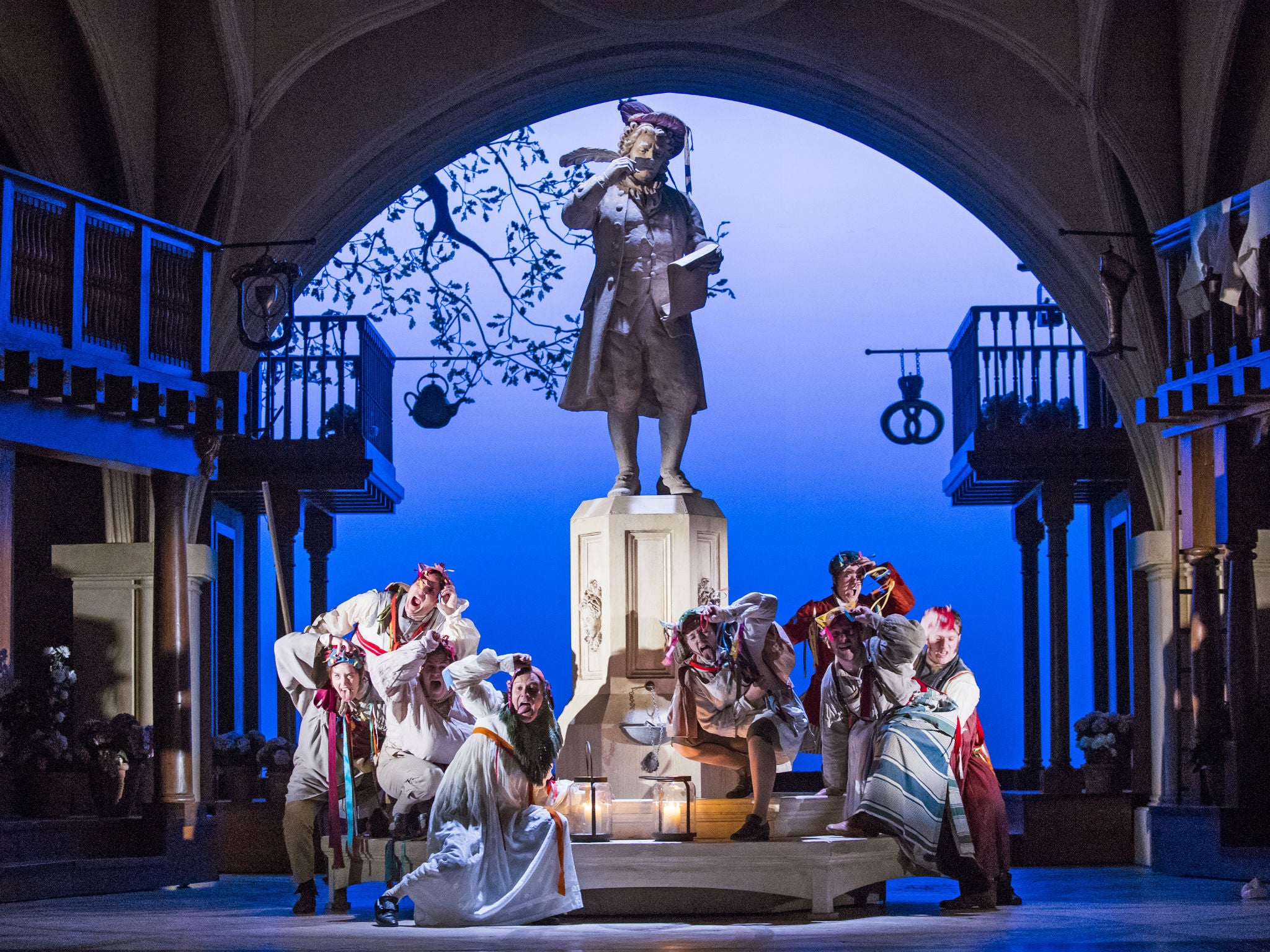Die Meistersinger Von Nürnberg, Glyndebourne Festival Opera, review: 'Power of love and creativity'

Your support helps us to tell the story
From reproductive rights to climate change to Big Tech, The Independent is on the ground when the story is developing. Whether it's investigating the financials of Elon Musk's pro-Trump PAC or producing our latest documentary, 'The A Word', which shines a light on the American women fighting for reproductive rights, we know how important it is to parse out the facts from the messaging.
At such a critical moment in US history, we need reporters on the ground. Your donation allows us to keep sending journalists to speak to both sides of the story.
The Independent is trusted by Americans across the entire political spectrum. And unlike many other quality news outlets, we choose not to lock Americans out of our reporting and analysis with paywalls. We believe quality journalism should be available to everyone, paid for by those who can afford it.
Your support makes all the difference.David McVicar’s Glyndebourne production of Die Meistersinger premiered in 2011 to a deafening chorus of approval, but that was before people had seen Richard Jones’s production for Welsh National Opera. While McVicar set the work in a lovingly recreated city of Wagner’s time, Jones adopted a delicately surreal approach that allowed him to rivetingly illuminate Wagner’s elaborate affirmation of the power of love and creativity.
Second time round at Glyndebourne, one still admires the convincing solidity of Vicki Mortimer’s designs, but the West End-style crowd choreography grates. On the other hand we get two brilliant characterisations: David Portillo’s agile and sweetly sung apprentice David deservedly steals the show, as does Jochen Kupfer’s mincing-Disraeli (and in no way anti-Semitic) Beckmesser. Alastair Miles brings paternal weight to Pogner, Michael Schade’s mature-looking suitor Walther carries total conviction, while Amanda Majeski’s ravishingly sung Eva radiates disembodied beauty under the cobbler-poet Sachs’s benediction.
But Gerald Finley’s portrayal of that pivotal character is on a provocatively slow burn - no trace of the brooding spirit with which he should preside over the first two acts, no ruminative magic in his ‘Wahn’ aria of Act Three. Only as matchmaker does he finally emerge with the requisite power. No praise is too high for the chorus, or for Michael Güttler’s nuanced work in the pit.
Join our commenting forum
Join thought-provoking conversations, follow other Independent readers and see their replies
Comments